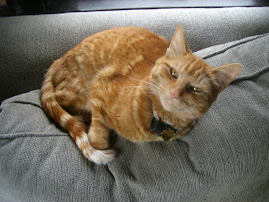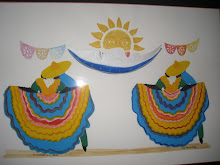Past is merely prologue, I tell my pre-adolescent daughters.
On days when they are suffering the inevitable emotional bruises of childhood, they are comforted by stories of my perceived childhood suffering. I was a chubby New Jersey girl with a dysfunctional family and an off-the-radar social persona in a small town where, as I saw it, no one appreciated my interest in foreign languages and spicy foods and people were in-your-face and proud of it. “And you know,” my stories often end, “I grew up and never saw any of those people again.”
Actually, it wasn’t that bad. Just the usual childhood middle class, small town angst, often portrayed in books and movies. And yes, I did grow up and, as many of us do, I’ve lived a life of many chapters: California student, exchange student in France, world traveler, foreign service officer and later, wife, mother and writer, settling into a peaceful existence in the verdant northwestern corner of the country, where the natives are polite and healthy and nobody ever gets run over by a garbage truck.
Here I’ve found my inner swan, taking the best part of my origins and subsequent reinventions and molding these qualities into the grown-up version of me. Over the years I’ve had happy reunions with several people from the more interesting chapters of my life. Yet, hovering on the periphery of 50, I’m still a little ashamed of my roots. So I keep my Jersey self hidden inside me (like the fat person that lurks within the body of the newly thin) only allowing it to emerge on special occasions, like when Bruce Springsteen plays the Superbowl or when I am loudly (and some say inappropriately) rooting for my daughter’s basketball team.
Then, they found me.
The first blast from the past came from my mother, a 75 year-old web surfing enthusiast, who, for most of her life, has been the living embodiment of a social networking site. Though, predictably, she lives in Florida now, she keeps up with the doings in our New Jersey hometown, remembers her high school years fondly and even lunches with her former classmates once a month. She found and later directed me to the website for my upcoming 30th high school reunion. Like a cyber peeping Tom, I looked but didn’t act.
A few weeks later I received a call from one of my best friends from high school, whom I hadn’t communicated with in 25 years. She still lived in Jersey, was going to be traveling in my neck of the woods, and wanted to get together.
Sitting in a neighborhood sports bar that I hadn’t known existed, I cringed as her husband, a die-hard Philadelphia Eagles fan, scream epithets at his team as the game went into unexpected overtime. Near another big screen TV, polite Seattle fans quietly cheered every small triumph of the beleagured Seahawks, making polite allowances for their flaws. It was like being with an embarrassing, yet lovable relative.
Later, we showed my kids our high school yearbooks and my friend filled me in on the lives of people I had forgotten existed – the stoner had become a Port-a-Potty millionaire, the jock was a doctor and several people seemed to have done quite well selling cars.
All of this made my past real to my kids and I decided it was good for them to meet people who had meant something to me and with whom I could still enjoy an easy rapport, despite distance, different politics and years gone by.
Then came Facebook.
Egged on to join by some foreign service friends who had posted some amusing old pictures, including one of me circa 1986 wielding a (fake) gun, terrorist-style, I succumbed to Facebook after months of resisting. I lost my innocence in the traditional way of Facebook newbies, wasting several hours the first afternoon reading the profiles of my many (thanks for finding them, Facebook) friends, prompting me to announce in my first “What Are You Doing?” posting, “Alison is regretting that she joined Facebook because she finds it as addictive as crack cocaine.”
Friends complained about the pressure to join Facebook, and relaxed in a sheepish, conspiratorial way when I admitted that I had joined too. Some justified it as a way to monitor their kids’ on-line activities, which we all know is the equivalent of saying you read Playboy for the articles.
It was only a matter of time before high school caught up with me via Facebook. The affable senior class president (now a media professor in Milwaukee) contacted me, I responded and we became “friends.” You know what happened next. Friend requests came in from one of the reunion organizers (still a die-hard Yankees fan), the audio-visual nerd (now with a struggling indie-music record label) and a woman last seen sneaking off to make out with my cousin (she appears to have settled down).
Requests also came in from people who weren’t my friends then, making me wonder why they wanted to be my friends now. I didn’t want to be rude, but I also didn’t want to open myself up to superficial and time-consuming encounters.
“Just ignore them,” my seasoned Facebook friends advised. “Everyone does it.”
So I did and I settled into a comfortable routine with Facebook, checking my “wall” (an ironic name for something meant to break-down barriers) once in a while, learning how to set my filters, ignoring martini requests and never getting around to writing 25 Random Things About Me.
Then he found me.
Actually, I found him first. I admit it, that first addict-like day, I didn’t just react to the friends Facebook sent me, I went trolling for people I knew and in the process learned that a lot of other people that I had once pigeon-holed had happily reinvented themselves too and that some (the senior vice president at Warner Brothers) would be well within their rights to have the last laugh.
While searching for my niece, I found 80 or so Krupnicks, none of whom was familiar to me… except one.
The postage stamp-sized photo revealed the unmistakable hair and brow of my father, who had been deceased for more than 20 years. The name, hometown and birthdate were familiar to me too.
Here was my half-brother, whose birth, when I was 13, coincided with my permanent estrangement from my father.
I clicked the page closed and enjoyed telling the story for a few days. Facebook had the power to literally raise the dead.
But then, after a few months, he found me.
The nuances of Facebook are perhaps more, well, nuanced then email. His approach was tentative, “Are you related to the Krupnicks in New Jersey?” My response, less so, “Yes, and I’m also related to you.”
Both his parents were now dead. I felt a surprising tenderness for this man/child I’d never met. I’d heard from my older brother that he had not had an easy life, though he had the standard carefree Facebook photo.
“I’m your half-brother,” he said, adding “I hope it’s okay that I contacted you.”
I am the veteran of a three-year, pre-internet, long distance relationship, which happily led to marriage. My attempts to choose the right words and the right tone and to interpret what my new Facebook correspondent was feeling, reminded me of the emotionally charged “voice-reading” I used to engage in during telephone conversations with my taciturn boyfriend-turned husband. At least then I had something to go on. These exchanges were much harder to decipher.
“Strange way to find a half-sibling,” I responded, trying not to betray the emotional turmoil I was feeling, “but nice to meet you. I hope you have had and are having a good life.”
Talk about an etiquette dilemma, this exchange was clearly on a different par from those Facebook stabs at friendship whose expectations had worried me. I wondered how far this would go. I wondered how far I wanted it to go.
Because Facebook had opened up the possibility that I could gain answers to the questions I’d never been able to ask my father. Doubtful, since my half-brother had been 12 when our father died. Maybe my father, whose bitterness at my mother tainted his relationship with me, wasn’t the same father he had known and I’d get to hear about his positive qualities. Maybe we would share a sense of regret and unfulfilled possibility, since we’d both “lost” our fathers at roughly the same age.
Was he feeling the same jumbled mix of emotions and, if so, what did he want from me? After all, we were strangers, with nothing in common but some genes and a last name that means Cold Barley Soup.
I guess I’ll never find out, at least not via Facebook.
Because despite my carefully thought-out response, I never heard from my half-brother again.
Was I too casual, inadvertently putting up a wall between us with my breezy “have a nice-life” sensibility? Maybe I wasn’t casual enough and should have added him to my “friends” list, though to me that smacked of insincerity. Or maybe, as many do, he had widely cast his friendship net to see what he could catch and had moved on.
It makes a good story and it’s one I’ve told often, most recently during a face-to-face encounter with a friend I hadn’t seen for thirty years. The internet brought us together but I realize that only a human connection will keep us that way.
Marvin Gaye had it right.
Funny how the music from one’s youth still says it all.
Subscribe to:
Post Comments (Atom)


No comments:
Post a Comment